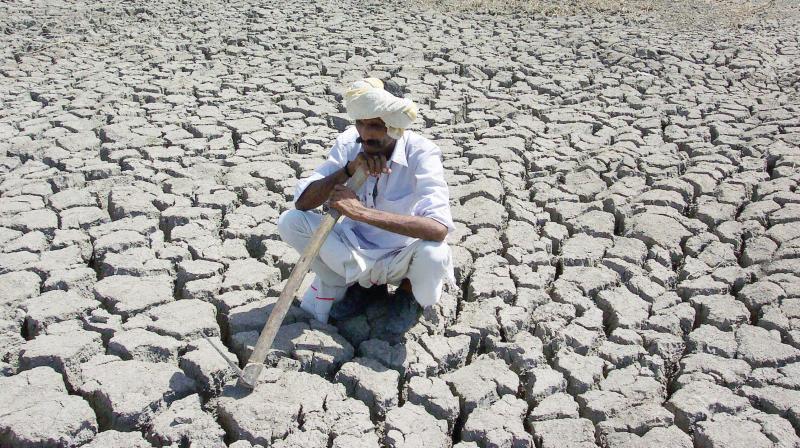
OR
Climate models fail to account for CO2's impact on life, scientists say
Published On: June 30, 2018 10:00 AM NPT By: Agencies

Increasingly, climate scientists are calling for climate models to focus more on CO2 levels and less on temperature.
In a new study, researchers from the University of Exeter contend warming could slow even as a rise in CO2 accelerates. Not only do current models mostly ignore this reality, study authors suggest they also fail to account for CO2's myriad impacts on biology -- on life.
Because current models use too narrow a range to describe future CO2 concentration, predictions tend to ignore the gas' impact on plants and animals.
"Higher CO2 concentrations cause increased growth in many plant species," Exeter researcher Richard Betts said in a news release. "This causes a general 'greening' of vegetation, but also changes the makeup of ecosystems -- some species do better than others. Slower-growing large tree species can lose out to faster-growing competitors."
Higher CO2 levels can also cause plants to use less water, which can diminish the impact of droughts on local ecosystems.
"Both of these factors can potentially enhance crop yields, possibly helping to offset some of the negative impacts of climate change -- although even if that happens, the nutritional value of the crops can be reduced as a result of the extra CO2," Betts said. "Rising CO2 also causes ocean acidification which is damaging to corals and some species of plankton."
The new research doesn't diminish the threat of global warming. Recent studies have suggested rising CO2 levels could pose a variety of serious threats even if warming rates plateau.
The latest paper -- published this week in the journal Nature Climate Change -- suggests the impacts of rising CO2 levels are likely to prove a mixed-bag.
But the details buried in that mixed-bag won't be revealed unless climate scientists start paying closer attention to the impact of rising CO2 levels on biological systems.
"To get the full picture, we need to consider these other effects of CO2 as well as those of rising temperatures," Betts said.
Betts and his research partners didn't attempt to predict the impacts of different CO2 levels on biological processes. Their aim was to show a wider variety of CO2 levels are compatible with different warming scenarios.
"Instead of calculating the probability of a particular amount of warming if CO2 doubles, we calculated the probability of a particular amount of CO2 rise for a particular level of warming," Betts said. "This lets us estimate what the range of CO2 concentrations would be when global warming passes those levels, if CO2 were the only thing in the atmosphere that we are changing."
You May Like This

Global Warming may be twice what climate models predict
July 7: Future global warming may eventually be twice as warm as projected by climate models and sea levels may... Read More...

Scientists say they have fixed the gene linked to Alzheimer’s disease
A team in California has identified the gene that is the primary risk factor for developing Alzheimer’s disease. More importantly,... Read More...

Climate change means king penguins must move or die, warn scientists
Feb 27: Climate change is likely to have a devastating impact on king penguins if greenhouse gas emissions continue at their present... Read More...










Just In
- Heavy rainfall likely in Bagmati and Sudurpaschim provinces
- Bangladesh protest leaders taken from hospital by police
- Challenges Confronting the New Coalition
- NRB introduces cautiously flexible measures to address ongoing slowdown in various economic sectors
- Forced Covid-19 cremations: is it too late for redemption?
- NRB to provide collateral-free loans to foreign employment seekers
- NEB to publish Grade 12 results next week
- Body handover begins; Relatives remain dissatisfied with insurance, compensation amount







Leave A Comment